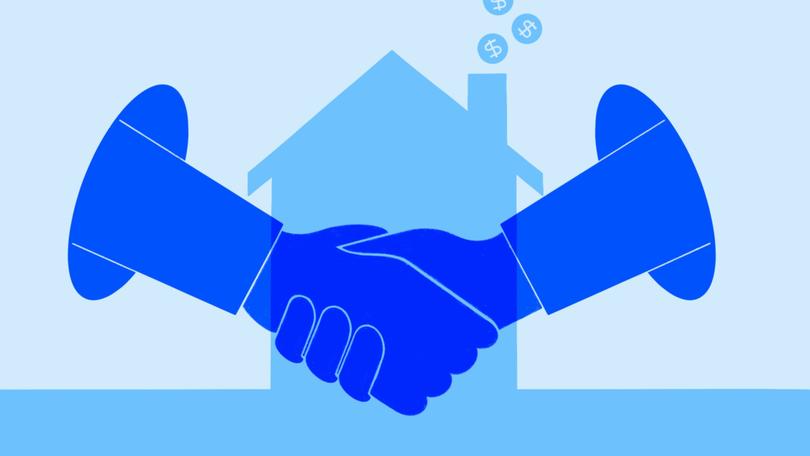DAVID KOCH: Owning a home has become a financial life raft for Australians battling a cost-of-living crisis
DAVID KOCH: While Australians are increasingly cash-poor during this financial crisis, some who have mortgages can use them to their advantage right now. Here’s how.

Homes have become the financial life raft of Australian families.
I know the property boom is making it tough for first home buyers to get into the market but it is saving thousands of Australians from going broke in this cost-of-living crisis.
While Australians are increasingly cash-poor during this financial crisis, they are generally asset-rich and getting even richer if they own a property — even those who took the negligent advice of the previous Reserve Bank governor and bought a house in the past two or three years on the false assumption that interest rates weren’t rising until 2024.
Sign up to The Nightly's newsletters.
Get the first look at the digital newspaper, curated daily stories and breaking headlines delivered to your inbox.
By continuing you agree to our Terms and Privacy Policy.Imagine the devastating financial havoc from high inflation, high interest rates, a slowing economy and a falling property market. That is the traditional combination of an economic recession which we would be in now if it wasn’t for the impact of 500,000 new customers (migrants) over the last year keeping the economy slightly above water.
Core Logic’s latest Pain and Gain report found that in the June quarter, the medium gain from sales of existing properties was $285,000 per property. That’s a record profit on sales since the property research group started this report back in the early 1990s.
There were 91,000 property sales over the June quarter and 94.5 per cent were sold for a profit above their purchase price. In Brisbane, 99.1 per cent of property sales were profitable, 98.7 per cent in Adelaide and 95.4 per cent in Perth.
Even though Sydney and Melbourne residential property markets are cooling compared with the smaller capitals they still had respectively 92 per cent and 90 per cent of sales making a profit.
Those relatively small number of properties sold at a loss had a medium deficit of $40,000.
The problem is homeowners are getting richer, but it doesn’t feel like it. That medium $285,000 profit on the sale of a property could instantly solve anyone’s cost-of-living crisis but it is frustratingly unattainable unless you downsize to a smaller property and bank the profit.
But that increasing equity in your home’s rising value can be used to ease your cost-of-living cash crisis in other ways.
First up, start negotiating a better home loan interest rate with your lender based on the higher equity.
The general rule of thumb is that the more equity you have in your property, the better the interest rate you’ll get from a lender. Over the past few years, many people who took out a loan based on a small level of equity in the property would now have a much larger stake given Australia’s property boom. And that could mean a better interest rate.
Lenders base your home loan rate on your loan-to-valuation ratio, the size of the loan against the value of the property. An analysis by Compare the Market found that interest rates for borrowers with an LVR of 50-60 per cent could be up to 0.40 per cent less than some of the top rates on offer for borrowers with an LVR of 80-90 per cent.
For a property valued at $500,000, that could be a difference of $1015 on a borrower’s monthly repayments. That’s an extra $1000 a month in your household budget to meet the cost of living expenses.
Property owners who have not refinanced during the past few years could be missing out. If you have been paying off your mortgage for quite some time, it’s also likely that the value of your property has increased.
People with a lower LVR are often entitled to lower interest rates because their loans are seen as less risky — this is your trump card.
But just because your LVR has decreased and improved, doesn’t necessarily mean the bank will automatically drop your interest rate. You have to do the heavy lifting to get that discount and actually ask the lender.
If you’ve recently undergone renovations or believe your property value has increased, you may have to ask the bank for an evaluation so they can determine whether you will qualify for a lower rate.
Another advantage of refinancing a home loan using your improved LVR to negotiate a better interest rate is that you probably paid lender mortgage insurance on the original loan if you had less than a 20 per cent deposit. That could have been up to $40,000 which would have been capitalised into the original loan.
If your equity is now higher than 20 per cent, no lender’s mortgage insurance is needed.
David Koch is the economic director of Compare the Market
